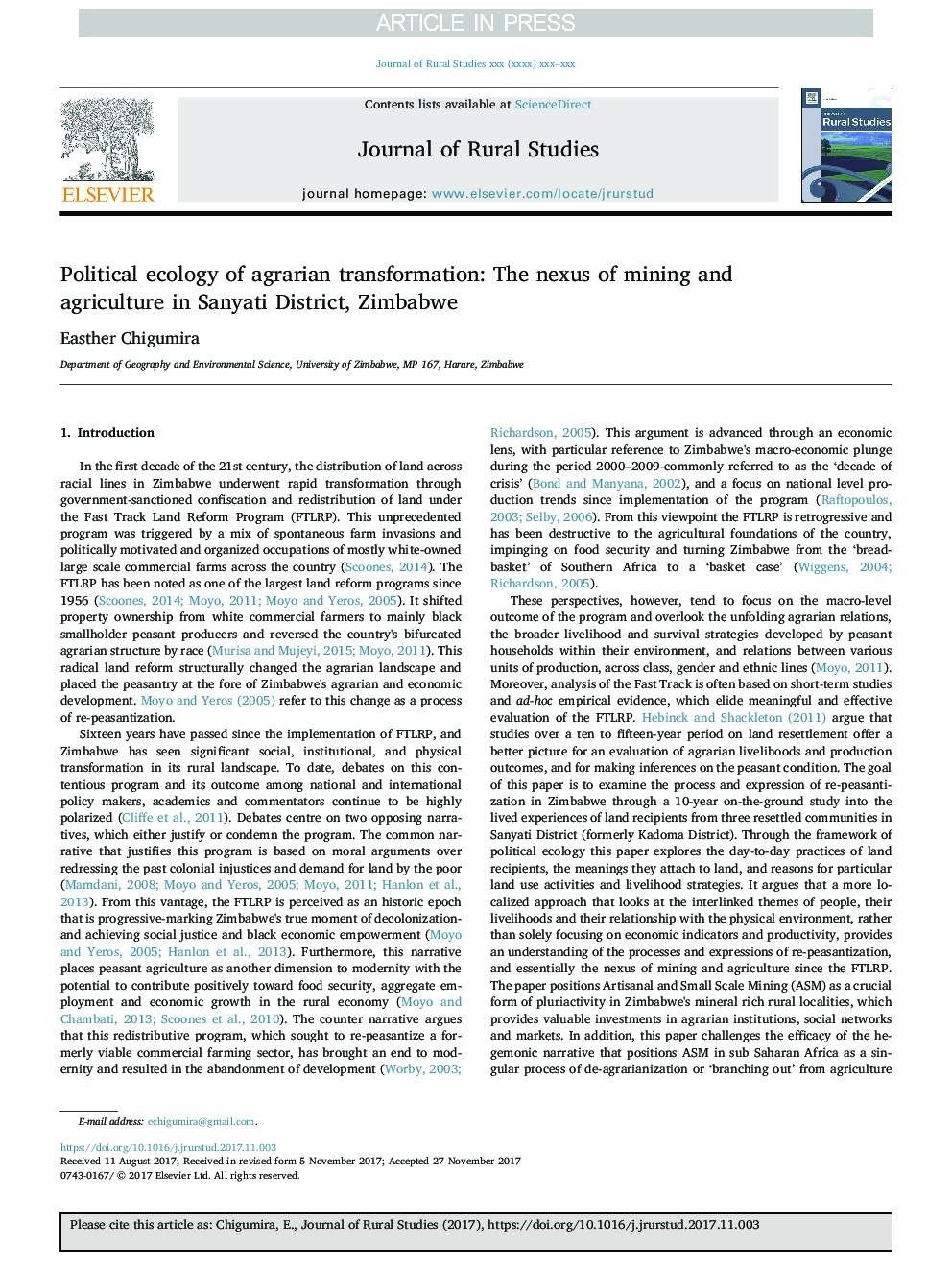| Article ID | Journal | Published Year | Pages | File Type |
|---|---|---|---|---|
| 6545256 | Journal of Rural Studies | 2018 | 12 Pages |
Abstract
This article contributes to debates on livelihood diversification in rural Africa. It analyzes the process of re-peasantization under Zimbabwe's Fast Track land and agrarian reform in which large-scale commercial farming spaces were reconfigured into mostly peasant territories. The paper presents findings from a decade-long study of three communities resettled under the A1 and A2 Fast Track Land Reform (FTLRP) settlement variants in the Sanyati District, Zimbabwe. It explores land recipients' relationship with the physical environment, reasons for particular land-use activities and control, and livelihood strategies. The framework of political ecology is utilized to examine the complex and dynamic agrarian strategies of land recipients that involve the intertwining of farming and artisanal small-scale mining (ASM). The findings show that farmers, in mineral rich regions, consciously engage in ASM as part of their livelihood provisioning, because income from mining provides valuable investments in agrarian institutions, social networks and markets. In addition, some farmers perceived ASM as a way to secure tenure on their landholdings. This paper challenges the efficacy of the hegemonic narrative that positions ASM in sub Saharan Africa as a singular process of de-agrarianization or 'branching out' from agriculture.
Related Topics
Life Sciences
Agricultural and Biological Sciences
Forestry
Authors
Easther Chigumira,
